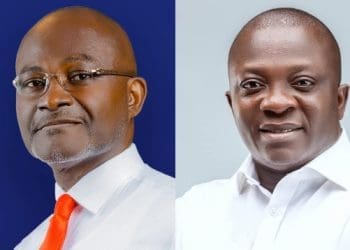Justice Paul Baffoe-Bonnie, nominee for Chief Justice, has pledged to restore public confidence in the judiciary, emphasising that the law must serve as both a shield for the weak and a restraint for the powerful.
Appearing before the Appointments Committee of Parliament in Accra on Monday, the 68-year-old Supreme Court judge outlined his vision for the judiciary if approved.
He said his tenure would be anchored on three pillars: procedural clarity, efficiency, accountability, and open justice.
“The law should be the law for everybody,” Justice Baffoe-Bonnie stressed, underscoring his belief that justice must not depend on one’s social status.
With 17 years of service on the Supreme Court bench, the nominee highlighted his integrity and experience as qualifications to lead the judiciary into an era of transparency and renewed trust.
He promised not only to preserve the institution’s legacy but also to strengthen its credibility in the eyes of the public.
The nominee gave the assurance that he would leverage information communication technology and Artificial intelligence in empaneling the Supreme Court bench and adjudication of cases to expedite trial of cases.

The vetting session was marked by drama as the Minority Caucus, led by Alexander Afenyo-Markin, staged a walkout in protest.
Their departure followed a heated exchange between Afenyo-Markin, who serves as Ranking Member of the Committee, and Majority Leader Mahama Ayariga.
What began as procedural remarks quickly escalated into a spirited debate over parliamentary rules, judicial independence, and the boundaries of legislative oversight.
In an effort to ease tensions, Mr Bernard Ahiafor, the Committee Chairman, called for a “cocoa break,” allowing members to cool off before proceedings resumed.
Justice Baffoe-Bonnie’s nomination comes at a critical moment for Ghana’s judiciary, which has faced questions about independence and public trust.
His pledge to uphold fairness and accountability will be closely scrutinised as Parliament deliberates on his approval.
If confirmed, he will inherit the responsibility of steering the judiciary toward greater openness and efficiency, ensuring that justice remains accessible and impartial for all citizens.












